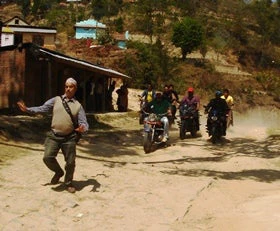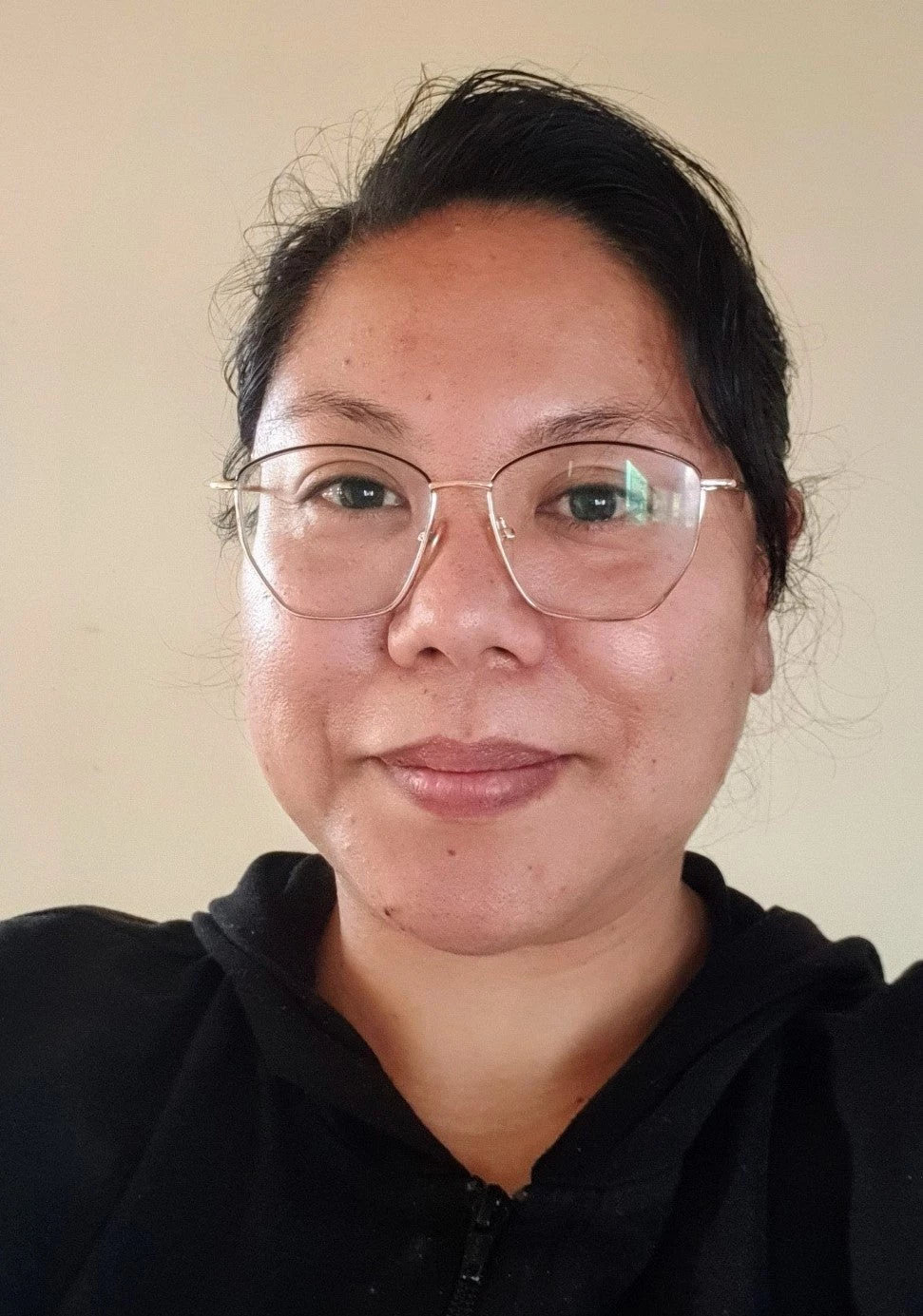
It would be an injustice to my childhood if I said that this song wasn’t a part of my growing up. Even before I knew the title of the TV drama, I knew this song by heart. I, along with my friends, would happily play and sing along to it. This was a famous song from a tele-series played by Nepal’s most celebrated comedians Madan Krishna Shrestha and Hari Bansha Acharya. Like this song, Madan Krishna and Hari Bansha, endearingly abbreviated as “MaHa” has been a household name to most Nepalis, either in Nepal or residing abroad.
They have, however, been different from other Nepali comedians- their comedy stand-ups or dramas have heavy dose of social morals in their highly creative and hilarious skits. After a break of two years, they are now back on TV with one such creation that infuses issues of social accountability with comedy. The tele-drama is titled “Aan” - A Nepali expression for opening mouth – metaphor for eating/misusing government resources.
“The subject is very dry. This is not like soap operas where the characters have highly dramatic lives. We have to heavily rely on artists’ performances as it should be technically sound to fetch audience attention,” says Hari Bansha Acharya, the producer and the actor for “Aan”. “We have previously worked on anti-corruption but this is the first time we are reflecting the real scenario at the village, district and national level. This is a virgin topic for TV and we hope we will be able to bring the kind of result that we are anticipating.”
The story
With the help of the protagonist, a Ward Secretary- Mr Durlav Kumar, played by Hari Bansha Acharya (translates as Mr. Unavailable) the drama weaves in practical implications that a whole village has to suffer in his absence and slowly takes the audience to the bigger challenges faced by the people in the district, regional and national levels where public service delivery is poor or even non- existent.
The story starts from a fictional Nepali village Daldale, where, Durlav Kumar, after being harassed to sign documents which he knows are not genuine, is forced to leave the village and goes to the District Headquarter. He carries his office in a bag (his ward office stamp, letter pad and few essentials). As whomever needs his endorsements would have to go to the headquarters to meet him, the villagers suffer a lot and go on a mission to find him.
On his journey from the village to the district level, Durlav Kumar shows how the government services are being misused (in road construction, water supply to business tender applications) and gives strong messages through comic references on the social accountability tools such as Right to Information (RTI) and Citizen’s Charter. The main message of the drama is to use such tools in order to learn and empower oneself about social accountability issues.
Following his journey as a village ward secretary, audience is given serious information but with the coating of comedy.
The Broadcast
At one of the shootings held in Palpa district in the western region of Nepal, the film crew were surrounded by people asking when it would air. When I asked them if they knew about social accountability, all except one person could speak about it.
Surya Prasad Bhandari was elated that MaHa was working on social accountability at this time of political instability in the country. “It’s very difficult for the government as well as the citizens in this kind of political climate. With no representation from the government, there has been a tug of war from various political parties even for small infrastructure and development contracts. There is absolutely no social accountability in the country. Most of the contractors are more money oriented rather than service oriented. If people are made aware through MAHA’s drama, they will have a better understanding of social accountability and how the citizens can benefit from it.”
The six-episode TV series is scheduled to broadcast on Nepal Television (national TV) from July 2013. It is a collective effort of the World Bank Nepal’s Program for Accountability in Nepal (PRAN) and MA HA Sanchar with support from Social Inclusion Action Program (SIAP).


Join the Conversation